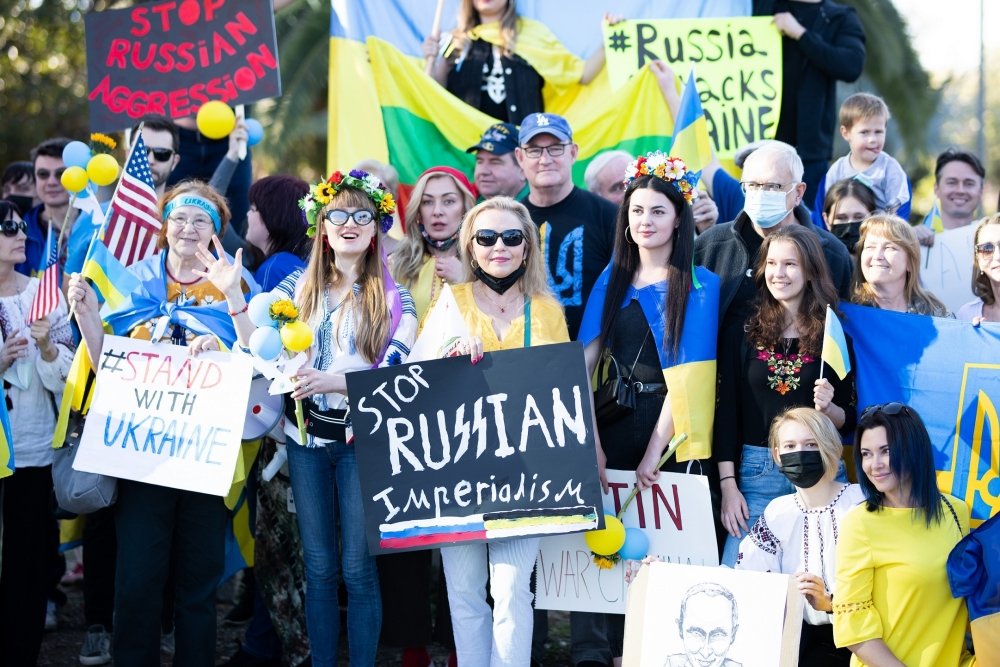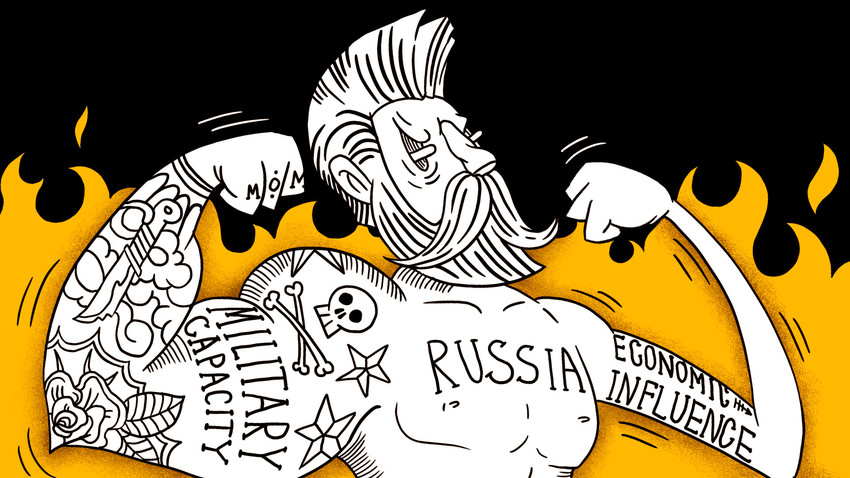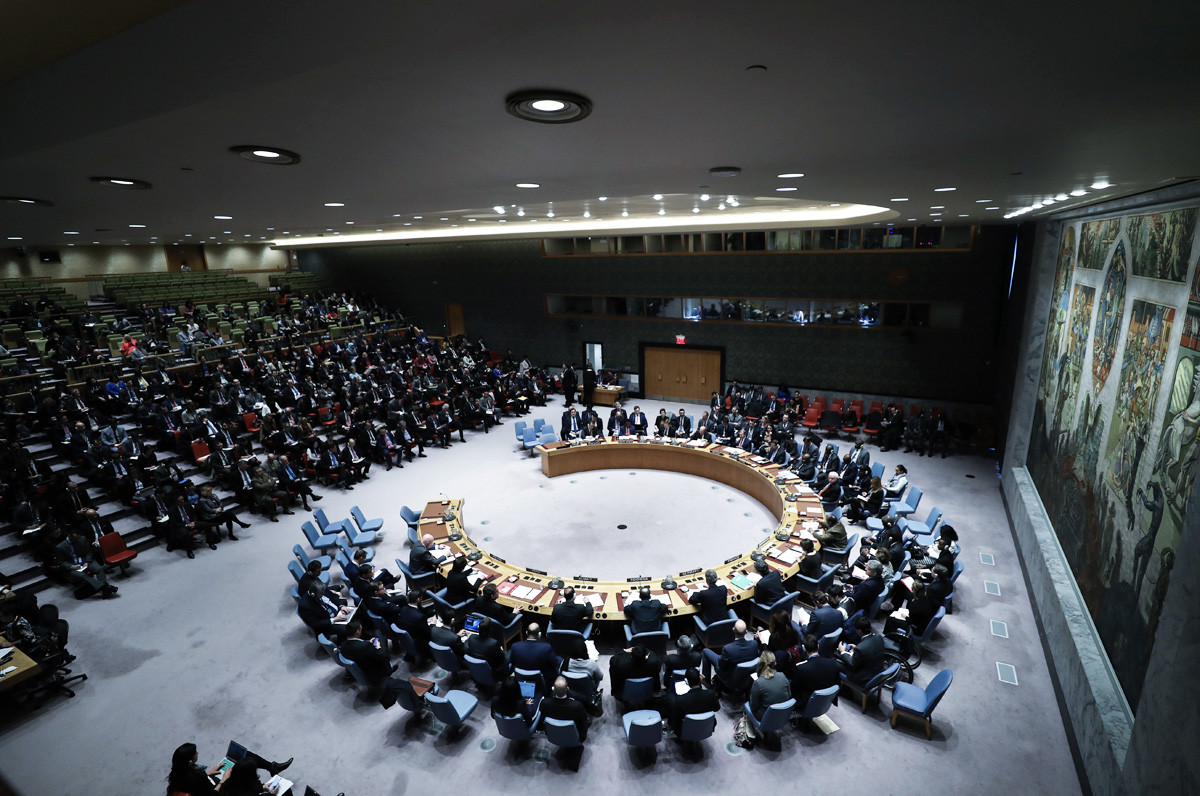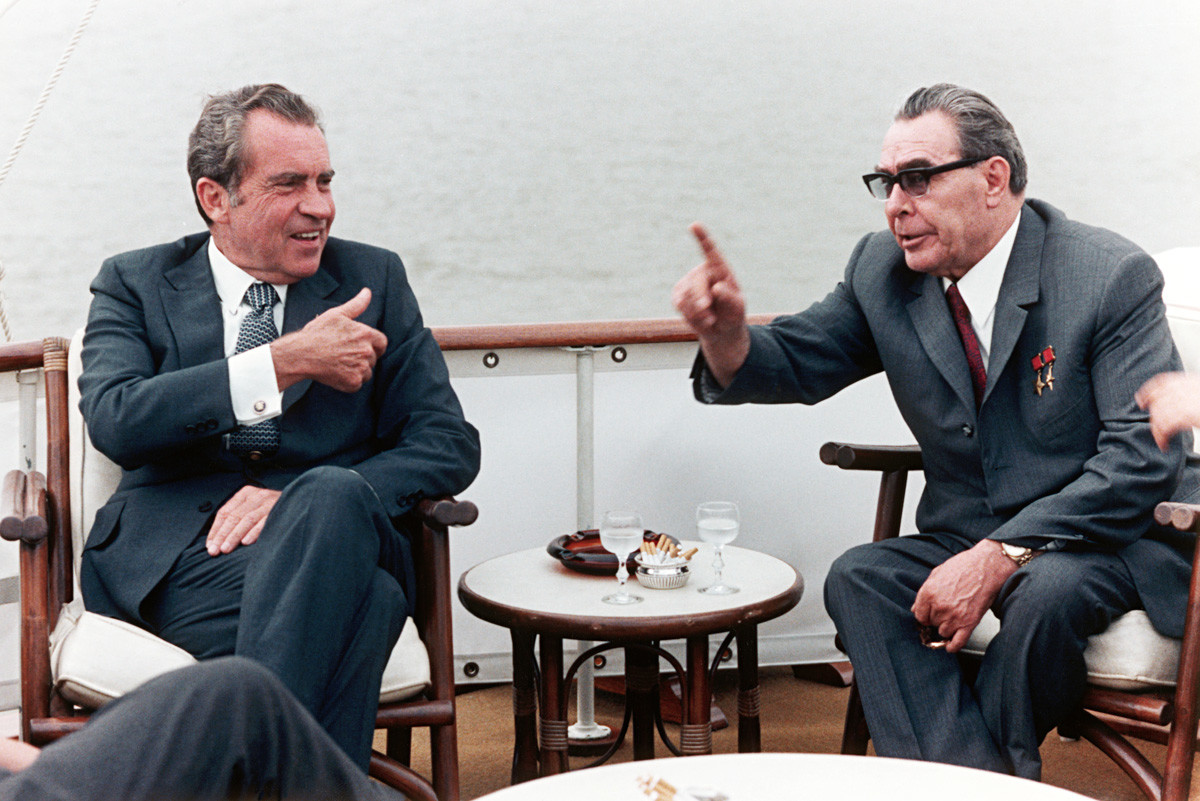PUTIN'S RUSSIAN INVASION OF UKRAINE AND THE UNLEARNED LESSON OF THE RUSSO JAPANESE WAR

The recent tensions around Ukraine have brought the world to the brink of a global confrontation. Europe has not faced such a massive threat since the end of the Cold War. It seems that Putin has decided to risk it all in a single bet and gain his point by threatening a global confrontation and full-scale intervention in Ukraine. While most Western observers are concerned about the fate of Ukraine, the other face of the conflict concerns the fate of Russia. How might the future of the Russian Federation develop because of a possible war with Ukraine?
Break the Backbone of Revanchism
In one of his interviews, Sergey Karaganov, a leading Russian political theorist, gave voice to an idea that, in my opinion, is the answer to the only possible future for Russia. His interviewer told him that the well-being of Austria and Germany improved considerably after they gave up their claims to global power, suggesting a comparison between Nazi Germany and Putin’s Russia. In response, Karaganov bluntly stated that, unlike those countries’ spine, Russia's backbone has never been broken: “We are a nation of conquerors … while they were conquered.” For Karaganov, the unbroken backbone actually means an opportunity for revanche, or the return of a nation’s lost territory. But a war loss may actually be the only way for Russia to return into the family of nations.
The comparison between Nazi Germany and Putin’s Russia, which has become common recently, may have something to it. Both cases are characterized not by a sane politics but by revanchism and ressentiment. In his thinking, Putin opposes Russia to NATO and seeks to return to the global distribution of spheres of influence as it existed in 1997, prior to NATO’s expansion to Eastern Europe. He sees NATO’s subsequent expansion to the east as a betrayal, and considers revenge for this treachery to be righting a historical wrong. The Kremlin’s ideological claims to Ukraine show the true face of the matter, which admits no compromise: there can be no stable Russia in the foreseeable future, or peace and security in Europe, so long as the Kremlin deems its claims unpaid. The demand to bar Ukraine from NATO, which would violate NATO’s charter, proves that Putin is seeking conflict and is looking for a reason to be first mover. For the Kremlin, it is the military scenario today that is the primary tool for achieving the desired result: Russia’s return to greatness and restoration of its sphere of influence.
All of this has echoes with the situation on the eve of World War II. Germany and Hitler sought revenge for Germany’s shameful defeat in World War I. Hitler did not want to agree calmly on new lands or boundaries of influence, as the Munich Treaty showed. He wanted war. Today, this horrible lesson needs to be revisited. When dealing with revanchism and ressentiment, it is impossible to reach a rational agreement on peace and stability.
All countries recruit young men and women to go to war. They die and their families hope against hope that they died for a higher purpose.
So many do not die for a higher cause but just for some egotistical narcissist, megalomaniac with greedy fantasies of the possibilities of gaining power, money and delusions of grandeur and glory.
What a 1904 War Can Teach Vladimir Putin
The Russo-Japanese War led not just to an immediate revolution, but to deeper and longer-lasting change years later.

A Russian column trying to make progress along a muddy road during the Russo-Japanese War (Art Media / Print Collector / Getty)
When, in an expansionist mood, Russia embarked on an ill-judged war of territorial conquest against its neighbor, it did so with a grandiose sense of its conquering power. Russia’s leader, who ruled nearly as an absolute monarch and held his counterpart next door in contempt, believed that his country’s interests were threatened, that Russia deserved more influence and respect. He had envisioned a scenario in which his enemy would yield quickly in the face of overwhelming odds and accede to Russian territorial demands.
Contrary to the expectations of the sovereign and his military planners, the initial campaign went badly for Russia. This was partly because of snarled supply lines and logistics, but the biggest factor in Russia’s early defeats was its profound misjudgment of its foe. No pushover, Russia’s opponent surprised the world with its determination and ability to resist Russian might, aided by timely support from European allies.
Although the circumstances may sound familiar to anyone who has followed Russia’s invasion of Ukraine, the above narrative actually describes the beginning of the 1904–05 Russo-Japanese War. The conflict set in motion or accelerated changes that impacted two world wars, the Cold War, and the present day, and offers profound lessons for contemporary leaders in Moscow and beyond. Indeed, Vladimir Putin’s military quagmire in Ukraine today is fraught with domestic dangers that, when they bubbled up during Czar Nicholas II’s reign, led to not just an immediate revolution but even bigger and longer-lasting changes years later.
Putin would recognize the unenviable predicament facing Czar Nicholas II in 1904, if he could bear to consider it. The czar had overestimated his nation’s military might, and the initial domestic support for Russia’s war with Japan began to falter as battlefield realities slowly started to seep in. Thanks to recent advances in telecommunications technology, there was no hiding that Russia’s armies were underperforming. Then, as now, Britain provided weapons and intelligence to Russia’s enemy, while the Poles seized the opportunity to collaborate militarily with Japan, which they viewed as the latest victim of Russian aggression. But the czar, isolated in his splendid palace, doubled down, a reckless gamble perhaps best epitomized by sending his Baltic naval fleet on an epic journey around the world to confront the Japanese navy in the Pacific. It did not return home.
Nicholas was nevertheless confident that Russia would ultimately emerge victorious; a reshuffling of strategy and greater commitment from the people would, he believed, tip the scales in Russia’s favor. The conflict raged for another year, but in the Battle of Mukden, in February 1905, the Japanese army broke the back of the Russian army, and shortly thereafter, the Japanese navy destroyed most of the remaining Russian Baltic fleet in the lopsided Battle of Tsushima.
 An illustration depicts the sinking of a Russian battleship during the Battle of Tsushima. (Credit: Edward Matania / De Agostini / Getty)
An illustration depicts the sinking of a Russian battleship during the Battle of Tsushima. (Credit: Edward Matania / De Agostini / Getty)Russia’s overconfident intransigence meant it missed an early window of opportunity whereby diplomacy—backed by a huge army and a respectable navy—could perhaps have secured some territorial concessions. Instead, it embarked upon a bloody contest, accompanied by credible reports of looting, civilian atrocities, and sexual violence. Russian troops proved themselves to be as brutal as feared in the territories they occupied. Russian generals were dismayed by the desultory performance of their troops, many of which lacked discipline and were unmotivated, as evidenced by widespread instances of soldiers disobeying orders. Russian efforts were also hampered by subpar technology, disagreement among commanders, a lack of combined arms coordination, and an inability to replace manpower and equipment losses in battle. Russia eventually pivoted to fighting to save face.
The unpopular and unnecessary war with Japan caused great turmoil within Russia. The economy was in disarray, food shortages were commonplace, and Russia was embarrassed internationally. For his failed war, among other poor decisions, the czar had lost the confidence of his people, sparking protests over economic woes and awful labor conditions (which were exacerbated by the conflict) that peaked on Bloody Sunday, a January 1905 episode in which the Russian Imperial Guard fired on unarmed protesters outside Nicholas’s Winter Palace in St. Petersburg, killing perhaps hundreds of demonstrators; they arrested thousands more. Facing military defeats coupled with domestic pressures, Nicholas finally sued for peace later in 1905. President Theodore Roosevelt presided over the Treaty of Portsmouth, which brought an end to hostilities. But peace with Japan did not bring domestic harmony: The 1905 Russian Revolution, which saw widespread unrest across the Russian empire, sowed the seeds for the 1917 Bolshevik Revolution that overthrew the czar and led to the murder of the Romanov dynasty.
Although the parallels between the Russo-Japanese War and the current invasion of Ukraine are striking, there are also key differences, and fully appreciating these distinctions is necessary to avoid facile conclusions. In 1904, Japan was an empire on the rise and embarking on its own expansionist period, leading to its confrontation with Russia’s hegemonic ambitions in East Asia. The two powers had been engaged in years of negotiations over territory in what is now northeast China and, in a notable similarity to their opening gambit at Pearl Harbor in December 1941, the Japanese in 1904 actually attacked first with a surprise strike on Russia’s naval fleet at anchor in Port Arthur on Manchuria’s Liaodong Peninsula before formally declaring war. And, like at Pearl Harbor, Japan badly damaged the fleet, thereby seizing the military initiative. Unlike the present-day Ukrainians, the Japanese did have a formidable naval fleet to bolster their expansionist agenda, and a loss for Japan would not have been existential for the country.
It is useful to illuminate the present and to confront the future by consulting the past. In this case, an analysis of the consequences of the Russo-Japanese War ought to concern Putin. There are many battlefield parallels between Russian military performance in these two wars, largely based on faulty assessments of the quality of their enemy. Putin’s far larger problem, however, is that throughout Russian history, humiliating military defeats have presaged major social and political upheaval. The Russo-Japanese War is but one example of this phenomenon. Russian failures against Germany in World War I helped usher in the Bolshevik Revolution, and the disastrous Soviet war in Afghanistan gravely weakened the political coherence and credibility of the Soviet Union. To be sure, these wars did not cause all of the social unrest in Russia. In each case, internal dynamics unrelated to the wars were at play, but they interacted with the conflicts in crucial ways. In each case, the military failures exacerbated structural problems and had an accelerating effect on Russian political developments.
After the 1905 revolution, the czar cracked down on dissent while also making nominal concessions, most notably allowing some popular political representation by creating a duma, though this was not a serious power-sharing arrangement. Likewise, there are Potemkin trappings of democratic governance in modern Russia, but no serious checks on Putin’s power. One risk with a personalized autocracy, like the Romanov monarch, is that the state is seen as synonymous with its leader. In the Russo-Japanese War, the Russian military’s rotten performance suggested, by extension, something of how rotten the state had become under the czar. Given how much Putin has personalized his rule in Russia, he now risks the shambles of the war in Ukraine becoming a proxy for his own mismanagement of Russia.
 A colorized photo of three Japanese soldiers sitting near the wreckage of a Russian warship in Port Arthur. (Credit: Burton Holmes / Archive Farms / Getty)
A colorized photo of three Japanese soldiers sitting near the wreckage of a Russian warship in Port Arthur. (Credit: Burton Holmes / Archive Farms / Getty)History suggests that what domestic dissent Putin may have been able to manage before the invasion of Ukraine will be harder to grapple with in the future. The czar twice enjoyed a brief period of patriotic war fervor before his people turned on him after military defeats. This may inform Putin’s recent crackdowns on dissent, but it misses the benefit of history’s long view. Throughout Russian and Soviet history, social movements for change have often been met with repression and mass arrests, which, in time, have the opposite effect of what autocrats have intended.
The cracks of domestic discontent are already visible in Russia, thanks to Putin’s frequently contradictory lies to his own people. When the Ukrainians sank the Russian naval flagship Moskva, Russian state media falsely claimed that there had been a fire onboard, that the crew of more than 400 sailors had been rescued, and that the ship went down in rough seas under tow. The reality was that 100 Russian sailors, perhaps more, went down with the ship thanks to two strikes from Ukrainian missiles. Many of these sailors were conscripts who Putin claimed would not be fighting in Ukraine in the first place. Their families have now bravely spoken out about their sons’ deaths, demanding information and accountability from a regime that, heretofore, they suffered quietly.
Putin has written often about his views of history. If he were to consider the lessons of the Russo-Japanese War, he would do well to remember the war theorist Carl von Clausewitz’s dictum that war does not take place outside the context of the society that wages it. Indeed, domestic unrest as much as any battlefield setbacks against Japan finally convinced Czar Nicholas II to abandon his military campaign. The present-day families of the estimated many thousands of dead Russian soldiers are unlikely to keep their peace about this senseless slaughter, and perhaps a great many other complaints besides.
Modern-day Ukraine isn’t Japan of the early 20th century, but the similarities between the dire circumstances of each for Russia can illuminate the social and political drivers that history suggests may happen now on an accelerated timeline. In fact, much as the Russo-Japanese War shaped the contours of the 20th-century world, so, too, may Putin’s calamitous invasion of Ukraine drive the forces that define the 21st.
The disaster of the Russo-Japanese War scrubbed the veneer off Imperial Russia, and it confirmed the decay across the empire. That war ended with an emerging country boldly announcing itself on the world’s stage, a loss of prestige and influence for Russia, and eventually the end of the ruler himself.
The defeat also served as an incubator for those seeking revolutionary political change. “The European bourgeoisie has its reasons to be frightened, and the proletariat has its reasons to rejoice,” exclaimed Vladimir Lenin after the fall of Port Arthur. Today, identifying any clear challengers to Putin’s power is difficult. Opposition leaders such as Boris Nemtsov have been murdered or, like Alexey Navalny, poisoned and jailed. Even if a focal point of resistance has not yet emerged, however, Putin’s disastrous war in Ukraine may be the spark for unknown actors in Russia—or in exile—to organize. He should recall that in Russia, after disastrous foreign wars, domestic discontent is never far behind.
Can Russia be considered a superpower?

While the military and political capacity of Russia remains undoubted, its economic influence lags behind.Natalya Nosova
Politicians and experts (of sorts) like to play with this loaded term, but many disagree, for instance, Vladimir Putin.
In 2016, Russian President Vladimir Putin called the U.S. the world’s only superpower. “America is a great power, the only remaining superpower, I guess… and we admit that we’re ready to work with the United States,” said Putin during the St. Petersburg Economic Forum. So, we can safely say that Russia isn’t a superpower, right? Let’s look at other opinions.
Some leaders and political scientists, however, still sometimes refer to Russia as a superpower: for instance, in July 2018, Austria’s Chancellor Sebastian Kurz called the summit between Putin and Donald Trump a good sign of “cooperation between two superpowers.” So, who is right?
What is a ‘superpower’?

The United Nations Security Council is certainly among places where Russia's words really have much weight.Getty Images
This seems like a good question to start off the whole superpower talk. The definitions differ but most political scientists agree: to be a superpower a country must have lots of military, economic, financial, cultural and ideological influence, and not just among its closest neighbors, but across the world.
“Zbigniew Brzezinski believes there are four factors necessary for a state to be a superpower: military, economic, scientific-technical and cultural,” writes Oleg Matveychev, a political scientist at the Higher School of Economics in Moscow. This makes sense: in order to influence the whole world (and that’s what superpowers do) a state should possess the most modern weapons and have a large economy, but at the same time, it should awe the world with its wonders of culture and science.
Limited opportunities
Does Russia meet these criteria? In some fields Moscow definitely has something “superpower-ish” – for instance, Russia can count on huge military capacity ($47 billion defense budget, full-scale nuclear arsenal and the world’s second most powerful armed forces, according to Business Insider).
Politically, Russia’s weight on the international arena is also impressive: as a permanent member of the UN Security Council it has the right to veto on every major resolution. In addition, the country plays an important role in European affairs and, thanks to its active position in the Syrian conflict, Russia also has much weight in the Middle East. Russia’s economic potential, however, is not as big as that of the U.S. With the world’s 11th largest GDP, it’s certainly an important country, but definitely not a superpower, economy-wise.
The above-mentioned realities limit Russia’s global role. “There’s only one parameter that proves Russia is a global power: defense resources. In other fields, we are not as powerful as we want to be, and this leaves many questions regarding what’s going to be our country’s role in the 21st century,” Alexander Dynkin, president of the Institute of World Economy and International Relations, told Kommersant.
Washington is lonely at the top
This wasn’t always the case: in the second half of the 20th century the USSR challenged the U.S. across the globe, a powerful menace that rivaled America in every field, be it military matters, politics, economic influence and culture.

Richard Nixon and Leonid Brezhnev.Getty Images
“After two devastating world wars, the global community found itself in a stable and very abnormal, in terms of history, shape. Two states dominated the world, incomparable to any others in its power,” said Fedor Lukyanov, editor-in-chief of the magazine, Russia in Global Affairs, in an interview. This bipolar world order defined the Cold War period.
“That’s when the term ‘superpower’ was coined, to distinguish those gigantic powers from the so-called ‘great powers” of the 19th century,’ Lukyanov added. Those included the UK, France, Germany, Russia and so on. But in the second half of the 20th century, there were only two superpowers. After the Cold war ended, one of the superpowers – the USSR – ceased to exist, and though Russia inherited some of its assets (nuclear status and a position on the UN Security Council), “its influence remained large but it was no longer unique,” the expert said.
Vladimir Putin seems to be right: while Russia is one of the major players in the international arena, it is not a superpower like the U.S. Can the latter remain the most powerful country on Earth, or will it eventually lose its crown, like what happened with the USSR? Only time can tell, but one thing is for sure - no one stays at the top forever.
No comments:
Post a Comment